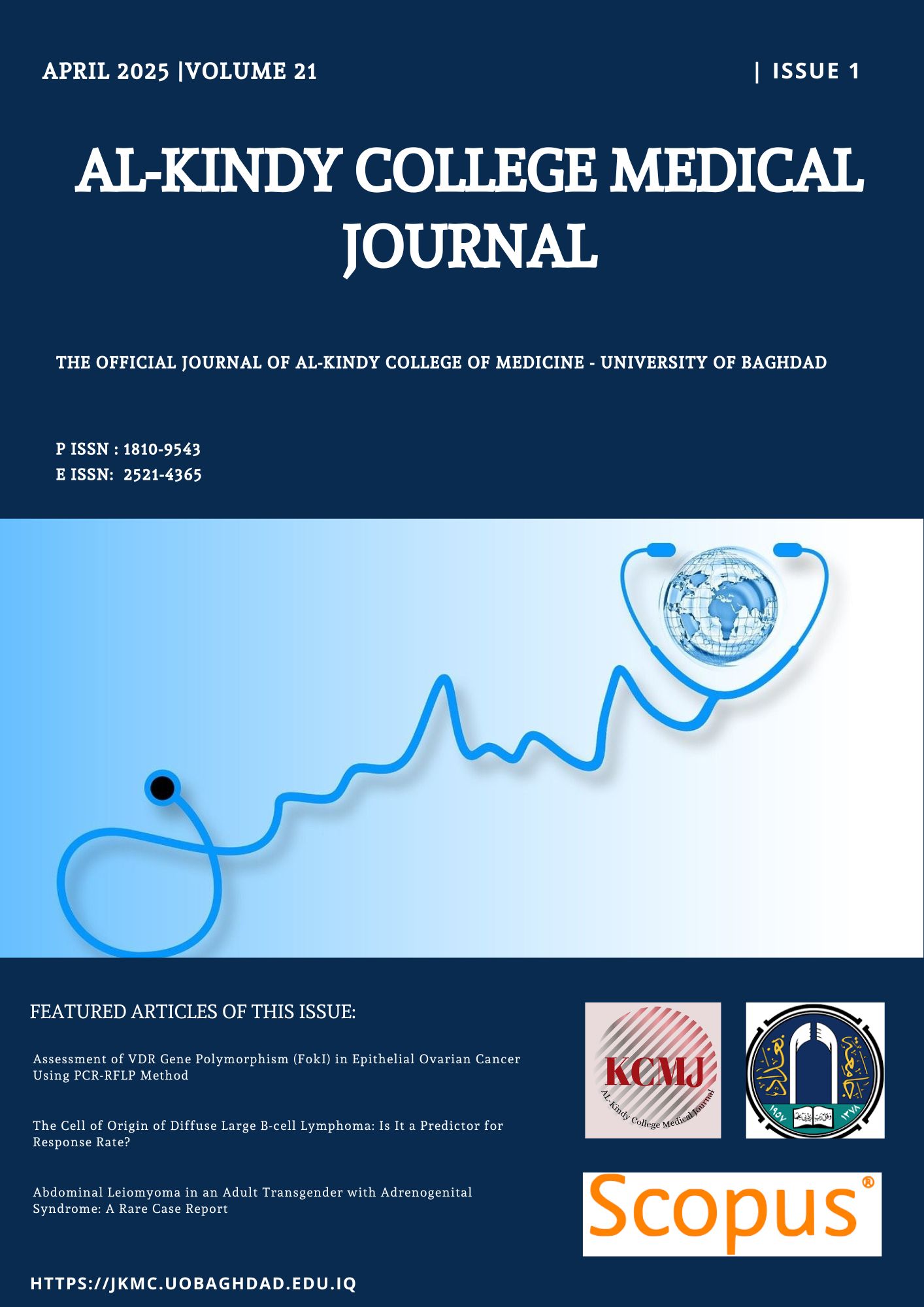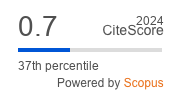Assessment of VDR Gene Polymorphism (FokI) in Epithelial Ovarian Cancer Using PCR-RFLP Method
DOI:
https://doi.org/10.47723/jbamm432Keywords:
VDR, Epithelial ovarian cancer, Genotyping, PCR-RFLPAbstract
Background: Epithelial ovarian cancer (EOC) has been associated with genetic variations in the vitamin D receptor (VDR) gene among women in different geographical locations. Due to inadequate detection methods, many cases are diagnosed at advanced stages. Vitamin D deficiency and the FokI gene polymorphism in the VDR gene are known to increase cancer risk. The current study aimed to evaluate the correlation between the VDR gene polymorphism (FokI) and epithelial ovarian cancer risk
Subjects and Methods: A prospective case-control study with 160 participants comprised 80 patients with epithelial ovarian cancer and 80 controls without the disease. FokI genotyping was observed using the PCR-RFLP technique, which allows for the precise identification of genetic variants in the VDR gene. Additionally, vitamin D levels were assessed through chemiluminescence immunoassay, providing quantitative data on vitamin D status.
Results: Serum vitamin D levels showed no clear association with ovarian cancer risk across tertiles (p > 0.05). Genetic analysis identified significant genotype distributions in cases versus controls, with the CC genotype associated with reduced risk (OR = 0.5238, 95% CI: 0.042 - 0.5238) and the CT genotype with increased risk (OR = 1.9091, 95% CI: 0.047 - 1.9091) of ovarian cancer.
Conclusions: Findings underscore the multifaceted nature of ovarian cancer etiology, suggesting that CT genotype in FOK1 gene increases the risk of ovarian cancer
Downloads
Published
Issue
Section
License
Copyright (c) 2025 AL-Kindy College Medical Journal

This work is licensed under a Creative Commons Attribution 4.0 International License.














